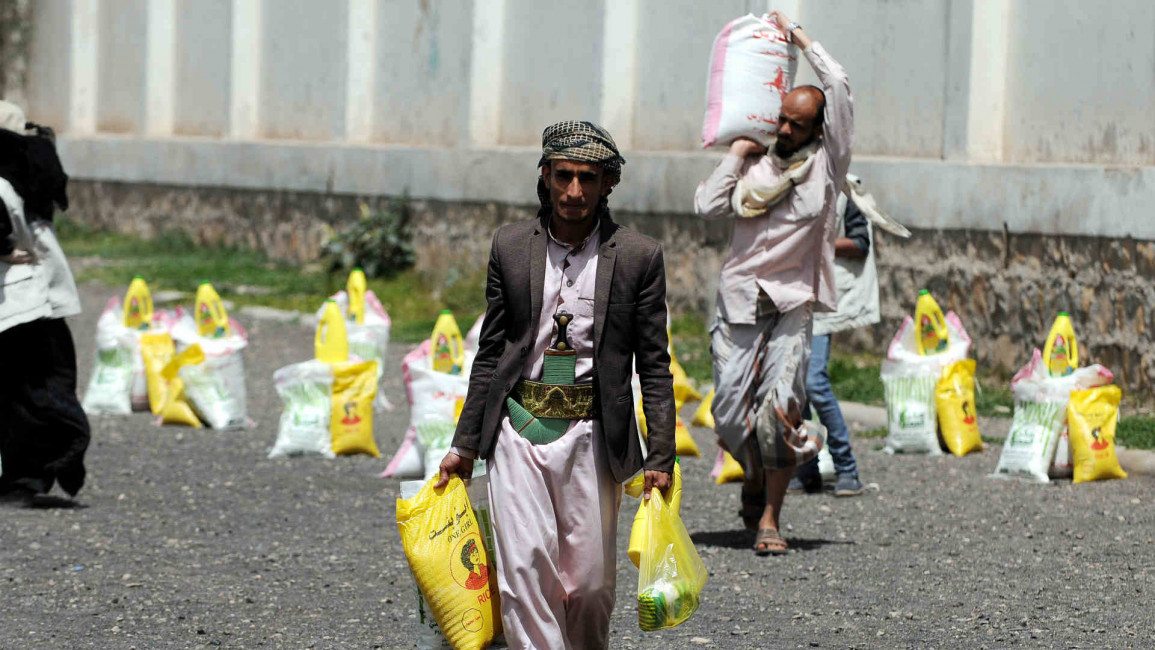'Life saving' Yemen aid programs will close if countries do not pay pledges, UN warns
Only three of 34 key aid programs received funding for the year, leaving 22 at risk of shutting down in the country described by the UN as the world’s worst humanitarian crisis.
The warning came after countries pledged $2.6 billion to help Yemen in February, but UN humanitarian coordinator for Yemen, Lise Grande, said less than half that had been paid.
“We are desperate for the funds that were promised. When money doesn’t come, people die,” Grande said in a statement. “It’s heart-breaking to look a family in the eye and say we have no money to help.”
In July, a senior UN official appealed for the international community "not to turn its back" on Yemen and to honour its pledges of aid for the impoverished and war-battered country.
"Four years of conflict according to the UNDP latest report have set back Yemen by 20 years," United Nations Development Programme administrator Achim Steiner told AFP in an interview in Amman.
He said the United Nations had received less than 36 percent of the $2.6 billion (2.3 billion euros) pledged at a Geneva conference in February.
"Currently in the next two or three months we can expect that if funding does not materialise, over 21 programmes will have to be rolled back," Steiner added following his first visit to Yemen since taking up his post in 2017.
Tens of thousands of people have died since a Saudi-led coalition intervened in support of the Yemeni government against Shia Houthi rebels in 2015, according to relief agencies.
"It is the worst humanitarian crisis in the world and in some respects it is getting worse because hostilities and fighting still continue and the situation for 20 million or over two thirds of Yemeni citizens require humanitarian support," he said.
"Ten million people currently face the acute risk of famine.”
"The world should not turn its back on Yemen," he urged, appealing for "solidarity and generosity" from the international community.
An estimated 24 million Yemenis - more than 80 percent of the population - depend on some form of humanitarian or protection assistance for survival, according to the UN.
The world body has warned that millions of Yemenis are on the verge of famine, while essential health, education and other services have all but collapsed.
Calling out Saudi Arabia
The UN called out Saudi Arabia and the United Arab Emirates for failing to pay the full $750 million pledged during a humanitarian appeal for Yemen five months ago.
UN aid chief Mark Lowcock said the two countries have only paid a “modest proportion” of the hundreds of millions of dollars pledged at a UN fundraising event in February.
Of the $750 million, Saudi Arabia has so far only paid $121.7 million and the United Arab Emirates about $195 million, according to UN figures.
Saudi Arabia and the UAE are both leading countries in a military coalition that was formed to fight Houthi rebels in Yemen and reinstate the internationally recognised government of Abedrabbo Mansour Hadi.
The controversial coalition has been blamed for more than half of Yemen’s death toll, which exacerbated when it intervened in March 2015.
“Those who made the largest pledges – Yemen’s neighbours in the coalition - have so far paid only a modest proportion of what they promised,” Lowcock told the UN Security Council, noting that as a result the UN appeal was only 34 percent funded compared with 60 percent at this time last year, according to a Reuters report.
Saudi Arabia’s UN ambassador responded by saying Riyadh had paid more than $400 million to the United Nations and other aid organisations this year.
“This year we alone ... we have paid more money into Yemen than any of the donors in the world,” Abdallah Al-Mouallimi told reporters.
The UAE’s mission to the United Nations said the Gulf state is “currently working with the UN on the modalities of the 2019 commitment to ensure maximum benefits for the Yemeni people.”
The UAE said it had allegedly given $5.5 billion in aid to Yemen since April 2015.
Meanwhile, the United States, which sells billions of dollars worth of weapons and military equipment to Saudi Arabia and United Arab Emirates, said it has paid more than $288.7 million to the UN Yemen appeal, making it the largest donor for 2019
“We join the call today for all donors to step up assistance in Yemen, and to fulfill their financial commitments,” senior US diplomat Rodney Hunter told the Security Council.
The war has killed thousands of people and has created what the UN calls the world's worst humanitarian crisis. Millions have fled their homes, and the UN has said 80 percent of Yemen's population - more than 24 million people - need aid, including 10 million who rely on food aid.
Saudi-led airstrikes have hit schools, hospitals and wedding parties and killed thousands of Yemeni civilians.
The Houthi rebels, meanwhile, have used drones and missiles to attack the neighbouring Saudi kingdom in response to what it describes as Saudi aggression in Yemen.
Follow us on Twitter: @The_NewArab



